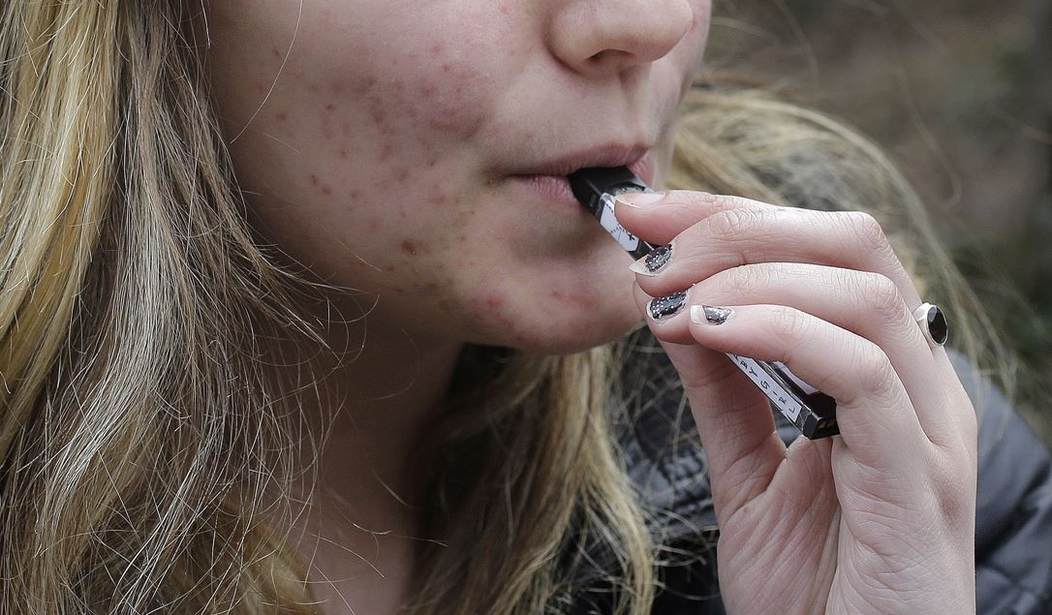Vaping, also known as smoking e-cigarettes, has been in the news recently because of deaths and illnesses related to the practice. President Trump just announced that the FDA is going to ban flavored e-cigarettes, except those that taste like tobacco smoke. Flavors like mango, mint and cotton candy appeal to teenagers who may not like the harshness of tobacco. Michigan has already banned flavored e-cigarettes.
E-cigarettes were introduced several years ago as a healthier alternative to cigarettes. They don’t contain tobacco. They usually contain nicotine, a flavor, and sometimes other additives.
Vaping is so new it has not been established yet what is causing respiratory symptoms. Doctors suspect it’s not nicotine or THC. THC is the main mind-altering ingredient found in the marijuana, also known as cannabis, plant. Some people add THC to e-cigarettes in order to get high.
Experts think the health problems may actually be caused by the addition of chemicals like Vitamin E. Of course, nicotine has been associated with brain development issues, so it’s not good for teenagers either.
A study by Houston's Baylor College of Medicine found that the ingredients used in vaping were just as harmful to lab rats as nicotine. "Vaping can cause quite a havoc in the lung, it is completely different from what cigarette smoke does," said Dr. Farrah Kheradmand.
In 2018, the FDA announced that over 25% of high school students use e-cigarettes. Vaping is illegal for those under age 18. At least six people have died and 380 have suffered lung injuries related to both THC and nicotine vape pens.
An 18-year-old vaper has filed a lawsuit against e-cigarette manufacturer Juul after becoming hospitalized. His doctors say his lungs look like that of a 70-year-old man.
On the other hand, 480,000 die each year from regular cigarettes. Considering only six people have died from vaping, could we be overreacting? A study found that smokers who switch to e-cigarettes are more likely to stop smoking than those using nicotine patches or gum.
Recommended
A former head of the FDA, Scott Gottlieb, believes the problem lies with the e-cigarettes being sold on the black market. He also doesn’t like how the states are regulating it instead of the federal government, since their laws are all over the board.
Dumas de Rauly, CEO of The Blinc Group, which produces vape products, said, “Black- and gray-market products will often dilute products to increase the quantity and then add carrier oils to improve the viscosity before selling it.” The company has pledged to keep heavy metals below industry standards, and called on other companies to do the same.
“Those products aren’t supposed to be in their lungs,” he said. “The problem is these black market people have no regulatory oversight.”
A study done by the New England Journal of Medicine found that more than half of vaping patients who developed a lung illness had purchased products from the “Dank Vapes” brand. Those products contain Vitamin E, which is used as a thickening agent to dilute the THC. The FDA warns about ingesting Vitamin E because “data is limited about its effects” on the lungs. According to David Downs, California bureau chief for cannabis website Leafly.com, “Drug dealers, looking to make as much money as possible, ?cut THC oil with Vitamin E acetate to dilute it but make it still appear pure to consumers.”
Jeff Brown, assistant commissioner of New Jersey’s Department of Health’s Medicinal Marijuana Program, said none of the vape-related illnesses in that state are related to products sold in state-regulated dispensaries.
It comes down to this: Are people’s lives being saved from dying of lung cancer by switching to e-cigarettes? As long as we’re not banning cigarettes, perhaps we need to keep this option open. There just needs to be more awareness that not all e-cigarettes are created equal. Buying them on the black market or from disreputable companies could be detrimental to your health. And manufacturers should stop marketing them to teenagers. Notably, flavored tobacco cigarettes are still legal.
E-cigarette manufacturers can apply next year to get approval from the FDA and return to the U.S. market. They will need to show that their products protect public health.

























Join the conversation as a VIP Member